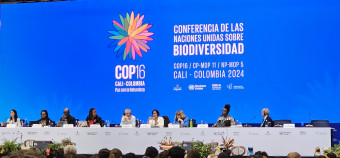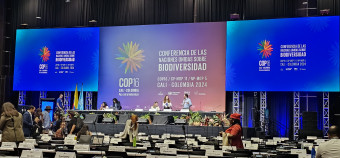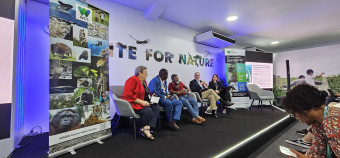In 1992, at the Earth Summit in Rio de Janeiro, Brazil, the United Nations Convention on Biological Diversity (CBD) entered into force, signed by 150 countries and creating the primary international policy mechanism for nature conservation.
The CBD has three aims: the conservation of biodiversity, the sustainable use of components of biodiversity, and the fair and equitable sharing of benefits from the use of genetic resources. As of 2025, the CBD has been signed by 196 Parties (individual country members of the UN, and the European Union). The Secretariat for the CBD, which oversees CBD processes, meetings and programmes of work, is based in Montreal, Canada. The decision making body of the CBD is the Conference of the Parties (COP), which meets on average very two years. The COP is supported by an intergovernmental scientific advisory body (the Subsidiary Body on Scientific, Technical and Technological Advice, or SBSTTA) which meets between COP meetings to discuss evidence and emerging issues, and to prepare recommendations for decisions at the COP.
At the sixteenth meeting of the COP (COP16) in Cali, Colombia in 2024, an additional subsidiary body was created to support work on Article 8j of the CBD. Article 8j requires Parties to the CBD to take appropriate steps to respect, preserve and maintain knowledge, innovations and practices of indigenous and local communities embodying traditional lifestyles relevant to the conservation and sustainable use of biodiversity. This includes ensuring that the holders of such knowledge and traditions are involved in the use of their knowledge, innovations and practices, and can share equitably in the benefits.
The Cohab Initiative was established in 2007 with the support of the Secretariat of the CBD and several other UN agencies, and we regularly engage with the COP and subsidiary bodies to support their work in areas relevant to health and well-being. Cohab is particularly involved in strengthening the evidence base for action on decisions relevant to health, supporting efforts to mainstream biodiversity into the health sector and to integrate health considerations into the work of the CBD, and to support and facilitate dialogue, diplomacy and partnerships.


 16th CBD COP meeting in Cali, Colombia, Octoebr 2024
Image credit: C.E.Kretsch / Cohab 2024
16th CBD COP meeting in Cali, Colombia, Octoebr 2024
Image credit: C.E.Kretsch / Cohab 2024
 Panel discussion on One Health at CBD COP16 meeting, Cali, Colombia
Image credit: C.E.Kretsch / Cohab 2024
Panel discussion on One Health at CBD COP16 meeting, Cali, Colombia
Image credit: C.E.Kretsch / Cohab 2024